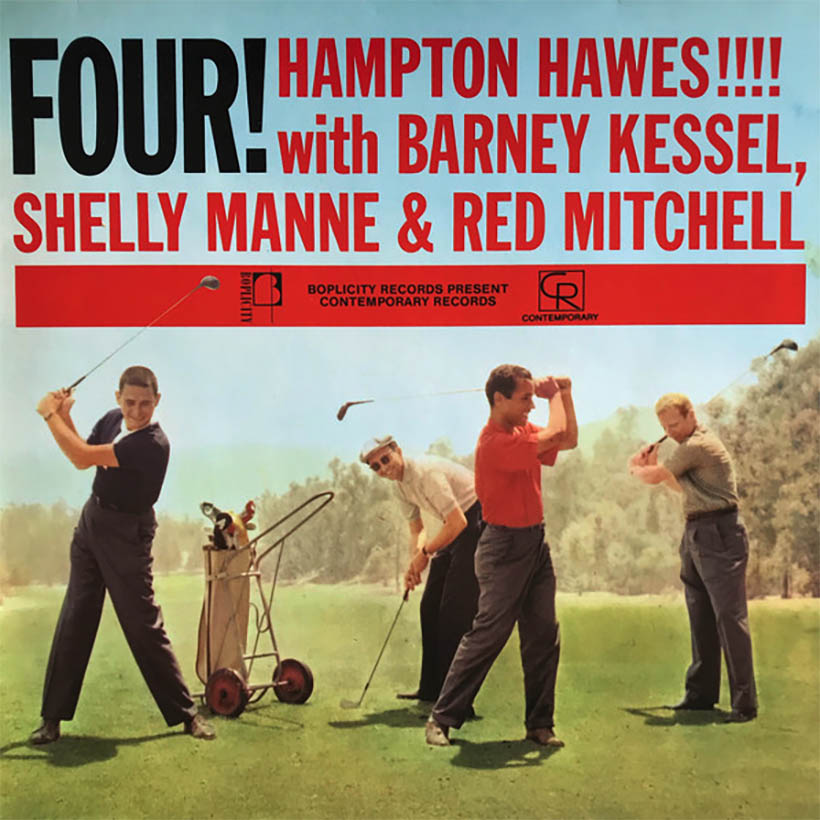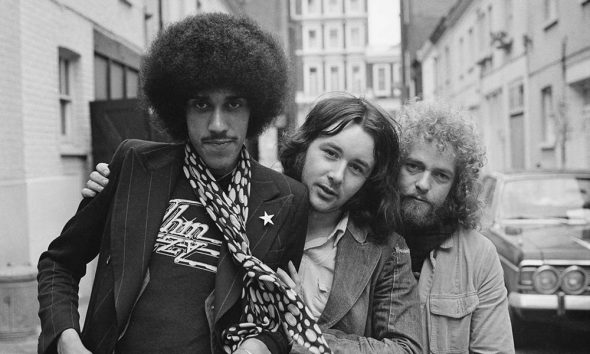Hampton Hawes’ Contemporary Years: A Hot Pianist At His Hottest
Hampton Hawes was one of jazz’s greatest pianists. Philip Freeman takes a look at the run of albums on Contemporary that solidified his reputation.

Hampton Hawes was born in Los Angeles in 1928, the son of a Presbyterian minister. His mother was the church pianist, and he began picking out tunes from her lap at home as a toddler. He taught himself to play, and by the time he was a teenager, bebop had arrived and he was gigging on Central Avenue with its West Coast progenitors, including saxophonists Dexter Gordon, Wardell Gray, Art Pepper, and Teddy Edwards. Perhaps his most notable collaboration early on, though, was with trumpeter Howard McGhee, whose quintet also included alto saxophonist Charlie Parker.
Hawes befriended Parker, and when he saw what an awful driver the saxophonist was, took on the responsibility of getting him to gigs. He wrote: “When I came early one night he motioned me to follow him to his room. I waded through piles of sandwich wrappers, beer cans, and liquor bottles. Watched him line up and take down eleven shots of whiskey, pop a handful of bennies, then tie up, smoking a joint at the same time. He sweated like a horse for five minutes, got up, put on his suit and a half-hour later was on the stand playing strong and beautiful.”
Listen to the best of Hampton Hawes on Contemporary Records here.
You see, Hampton Hawes was not just a pianist; he was also the author of one of the most compulsively readable books ever written about jazz. Raise Up Off Me, co-authored with Don Asher and originally published in 1974, is an unflinching but darkly hilarious exploration of his life, encompassing music, addiction, encounters with racism, military service, and jail time, in a tone somewhere between Chester Himes and William Burroughs. It won the ASCAP Deems Taylor Award for music writing the following year. Unfortunately, Hawes died just two years later, suffering a brain hemorrhage on May 22, 1977, at 48.
As Hawes recounts in the book, he first recorded on his own in 1952, but shortly thereafter joined the Army and served in Japan for two years. When he returned to the US, his solo career took off in earnest. He signed with Lester Koenig’s Contemporary label, and recorded three albums’ worth of material in three sessions between June 1955 and January 1956, with a trio featuring bassist Red Mitchell and drummer Chuck Thompson.
“We recorded our first album for Lester Koenig one night in June from midnight to dawn in the Los Angeles Police Academy gymnasium in Chavez Ravine,” Hawes wrote. “They had a good Steinway there that Artur Rubinstein used, and Lester wanted to get away from the cold studio atmosphere, experiment with a more natural sound. It was a relaxed session, the lights low, Jackie and Red [Mitchell]’s wife Doe sipping beer at a table behind the piano while we played…”
These three trio sessions are about as exciting a calling card as any in jazz. Hawes has a light, dancing touch on the piano; the technical intricacy of 1940s bebop is occasionally present in some of his right-hand runs, but he’s deliberately slower than Bud Powell and faster than Thelonious Monk, sitting in a comfortable middle zone where he can swing with a seeming effortlessness. “Hamp’s Blues,” from the first session, is a perfect example. It’s speedy, but surprisingly precise; he drops the notes into place like they’re locked to a Pro Tools grid, as Thompson lays down an equally immaculate beat and Mitchell glues it all together. On the second album, This Is Hampton Hawes, his version of the standard “Yesterdays” begins with an ornate introduction – a series of trills and extrapolations which sound solo at first, until you notice that Mitchell is creating low bowed drones behind him. After two minutes, the rhythm kicks in, a hard-swinging shuffle, and the foot-tapping groove is irresistible.
Hawes wrote two pieces for 1956’s Everybody Likes Hampton Hawes, the straightforward gospel-jazz workout “The Sermon” and the album-closing bebop sprint “Coolin’ the Blues.” In between, the trio explored versions of standards like “Lover Come Back To Me,” “Embraceable You,” and the bouncing “Billy Boy,” a tune fellow pianist Ahmad Jamal had recorded a couple of years earlier. Hawes takes a similar approach, hitting the chords hard, but makes it his own.
On the night of November 12, 1956, Hawes and Mitchell entered the studio with guitarist Jim Hall and drummer Eldridge Freeman and recorded close to 20 tracks which were split between three albums called All Night Session! The guitarist, a subtle accompanist capable of speedy bebop runs, was a perfect front-line partner for Hawes, who sprinted through some tunes while relaxing and letting others run a leisurely course. The first album ended with the 11-minute “Hampton’s Pulpit,” a strutting blues with real bite that may remind some of the creative dynamic that would develop between guitarist Grant Green and pianist Sonny Clark a half-decade later.
Hawes’ original Contemporary run ended in 1958, with the albums Four! and For Real! The former was recorded with guitarist Barney Kessel, Red Mitchell on bass, and Shelly Manne on drums; the version of “There Will Never Be Another You” has a twitchy, bouncing-ball energy, and the lesser-known standard “Love Is Just Around The Corner” is lyrical and emphatically swinging at once. For Real! featured tenor saxophonist Harold Land, bassist Scott LaFaro, and drummer Frank Butler. It was a gutsy hard bop session with some surprisingly adventurous playing; LaFaro, who also worked extensively with Bill Evans and briefly joined Ornette Coleman’s quartet, was an exploratory player who gave even simple bluesy melodies a sense of possibility. The album’s first track, “Hip,” is the only Hawes original, and it has the dancer’s energy typical of his work, but the interaction between LaFaro and Butler is surprisingly advanced for 1958.
For Real! wasn’t released until 1961, and by that time LaFaro was dead, killed in an automobile accident, and Hawes was in prison for heroin possession. He was sentenced to ten years, scheduled for release in 1969, but was pardoned in 1963 by then-President John F. Kennedy, less than three months before Kennedy’s assassination.
After his release, Hawes struggled to rebuild his career. He remained creative, putting out a string of excellent albums, but it’s arguable that he never fully regained the professional momentum he had before going inside. He even shifted to electric keyboards for a time in the early 70s – “Josie Black,” from 1972’s Universe, is a compelling funk vamp featuring Arthur Adams on guitar, Chuck Rainey on bass, Leon “Ndugu” Chancler on drums, Harold Land on tenor sax, and Oscar Brashear on trumpet, very much in the vein of Herbie Hancock’s Mwandishi band. Hawes got his start as a bebopper, but he wasn’t stuck in the past.
Hampton Hawes’ 1950s albums feature some of the best jazz performances to ever come out of Los Angeles. And Raise Up Off Me is a sometimes harsh but other times riotously funny look at a life in jazz, the army, and prison, on drugs and off – one of the best musicians’ autobiographies ever written. Hawes’ name should be written in bold type in the history of American music.












